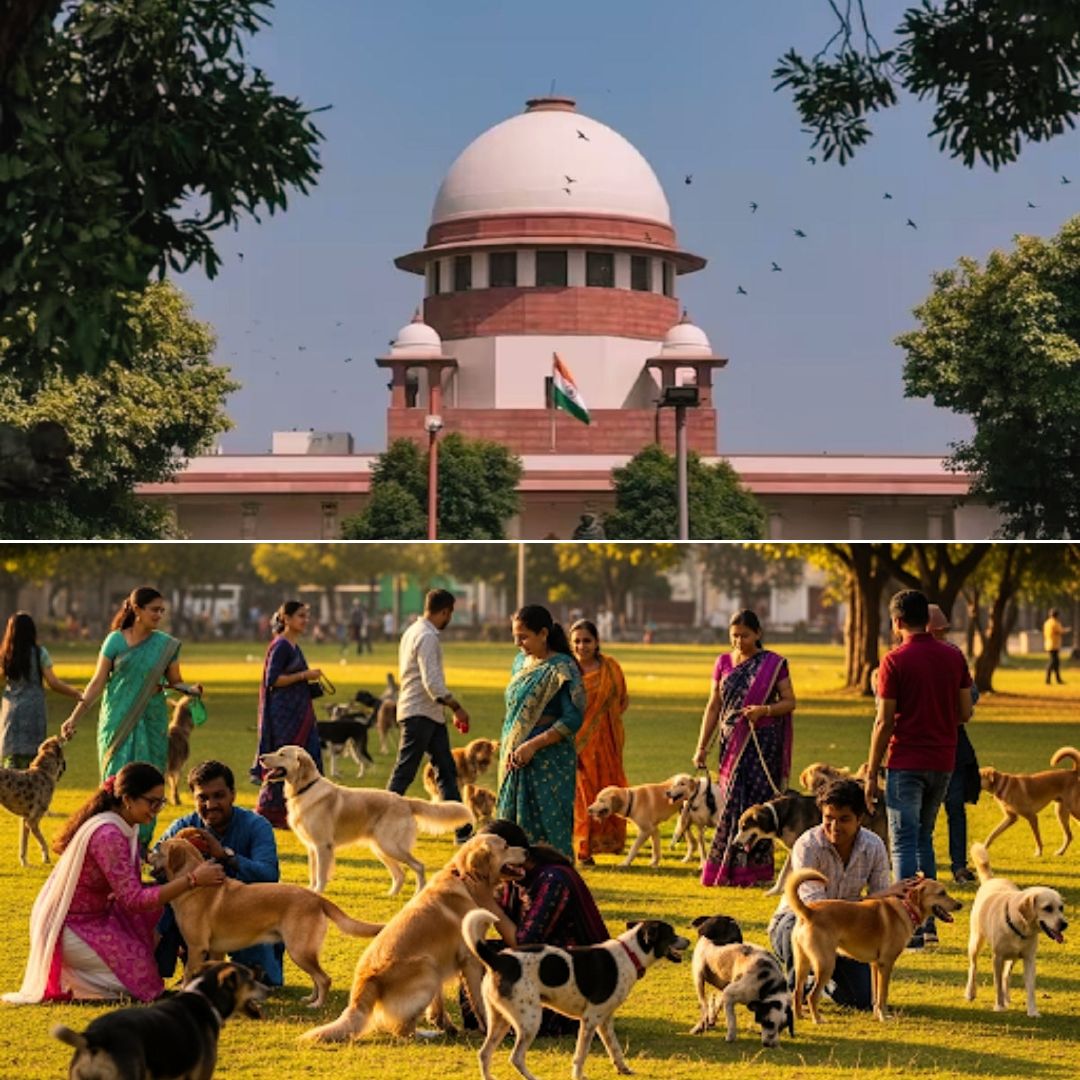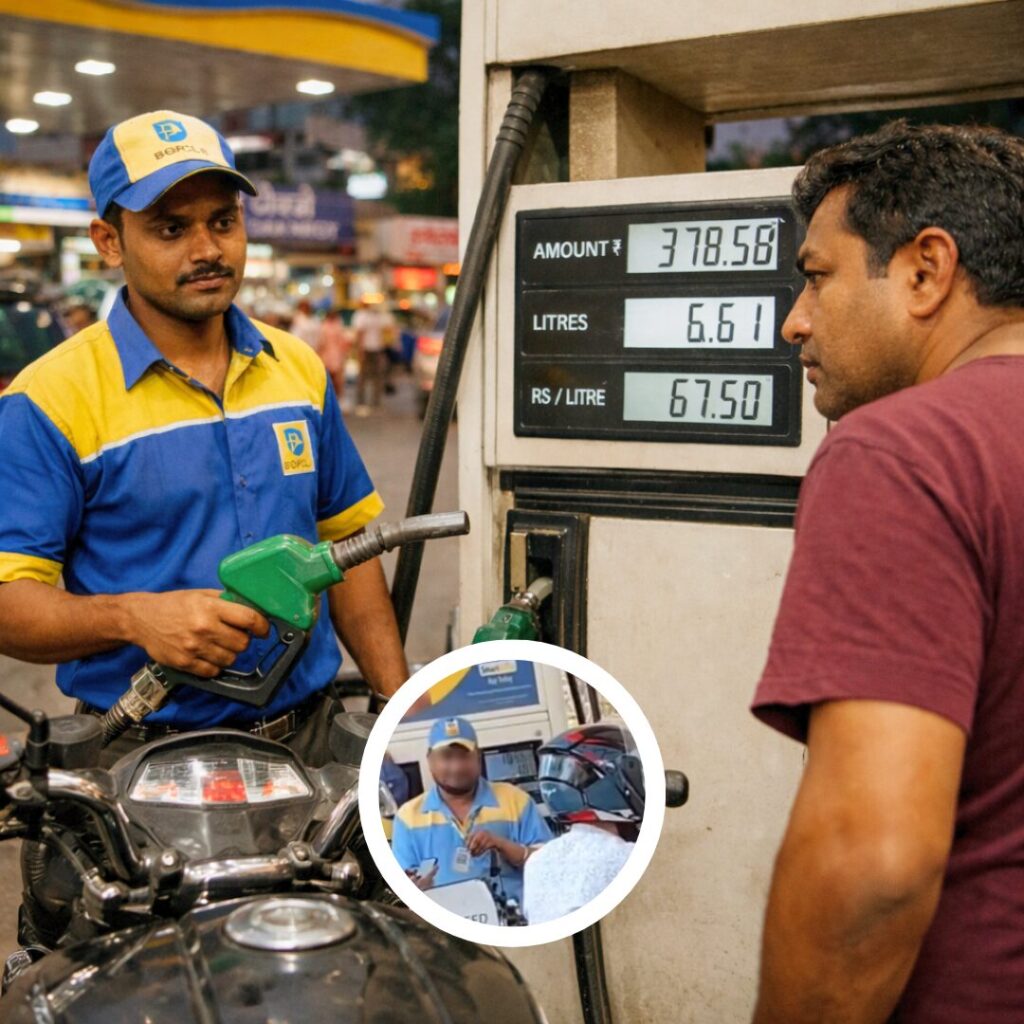The Supreme Court of India has directed NGOs to deposit ₹2 lakh and individual dog lovers ₹25,000 before further participation in stray dog legal cases, with non-compliance leading to loss of rights to appear.
The Court also revised its August 11 order, mandating that stray dogs in Delhi and adjoining areas be sterilised and vaccinated before being released back into their original localities, except for those showing aggressive behaviour or infected with rabies.
Additionally, the Court prohibited public feeding of stray dogs on streets, instructing municipal bodies to create designated feeding zones. These steps aim to balance public safety concerns with animal welfare, utilising funds collected to improve stray dog sterilisation, vaccination, and shelter infrastructure under the Animal Birth Control Rules, 2023
Supreme Court’s Directive: A Blend of Accountability and Compassion
The three-judge bench headed by Justices Vikram Nath, Sandeep Mehta, and N. V. Anjaria imposed financial prerequisites reflecting an effort to ensure genuine participation from NGOs and individuals concerned with stray dog welfare. The collected funds will support municipal efforts to build and maintain sterilisation centres, vaccination facilities, and shelters in line with animal welfare statutes.
Clarifying the court’s orders, Advocate Vivek Sharma, representing the petitioner NGOs, stressed that the penalty deposits are not intended for ordinary citizens. “The observation (of imposing fines of ₹25,000 and ₹2 lakh) is meant for NGOs and intervenors who intervened in the suo motu matter, not for common people. The purpose of it can be understood by going through the order. These funds will be used for the welfare of dogs,” Sharma explained, as reported by India Today.
The Court’s revised order, which came after widespread protests against the earlier directive ordering mass relocation of stray dogs, now stipulates that after sterilisation and immunisation, dogs must be returned to their original areas unless they are rabid or exhibit aggressive behaviour. Public feeding of stray dogs in unauthorised places is banned, with feeding confined to designated, well-marked zones; violations will attract legal action. These measures aim to address escalating dog bite incidents and rabies-related deaths.
Background and National Context of ABC Rules, 2023
The Animal Birth Control Rules, 2023, notified by the Government of India, provide a comprehensive legal framework to manage stray dog populations using the Capture–Neuter–Vaccinate–Release (CNVR) method. The rules call for local authorities to reach at least 70% sterilisation coverage, strengthen immunisation campaigns against rabies, and improve shelter facilities.
Central and state governments, along with municipal corporations, have been urged to cooperate with recognised NGOs under the rules, facilitating sterile and vaccinated dog populations living safely alongside humans. However, challenges remain with limited funds, veterinary infrastructure, and coordination, leading to uneven implementation nationwide.
The Supreme Court’s order reinforces these goals, making clear that local bodies must establish helplines and create and maintain dog shelters and feeding zones to ensure humane and effective stray dog management practices.
The Logical Indian’s Perspective
This ruling embodies the complex intersection of public safety, animal rights, and civic responsibility. The Logical Indian supports delivering sustainable infrastructure and scientific approaches to managing stray dogs humanely. Nonetheless, the judicial imposition of participation fees highlights the risk of marginalising smaller NGOs and individual advocates who are vital to grassroots animal welfare
We believe inclusive dialogue and partnership among government agencies, NGOs, dog lovers, and citizens can foster coexistence that respects the dignity of animals and safety of people.













